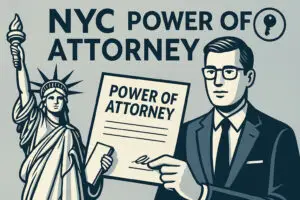Below are some of the surprising state planning mistakes you should avoid when planning your estate. Avoiding these mistakes will ensure that you create an estate plan that is capable of catering to your needs (should you become incapacitated) and the needs of your loved ones after your demise.
Ownership mistakes and imbalances
If too many of the assets are in a spouse’s name, it could increase some taxes. Frequently, one spouse may have worked longer and will have a significant IRA. They may also have a vacation apartment or investment accounts in their name alone. By shifting the house or investment accounts to the other spouse, the estate becomes more equalized, and thus reduces the possibility of owing taxes after the first death.
Failure to deal with your own mortality
Of course, you are going to die someday, regardless of if you want to face the bitter truth or not. Don’t leave your family ruined because you don’t want to handle an uncomfortable situation.
There are a lot of things that can go wrong after someone passes. Don’t make matters worse by failing to create a good estate plan. If you’re worried about the cost of hiring a competent estate planning attorney, we can boldly tell you that it is quite cheaper than litigation.
Failing to create an estate plan:
The first estate planning mistake on our list is the failure to create an estate plan. If you fail to create an estate plan that comes with a will, your assets might end up being distributed according to state law, irrespective of your wishes. To prevent this from happening, ensure you create your estate plan before it’s too late.
Failure to update your estate plan
An estate plan is not something you create and lock up in your cupboard till you pass on. You need to update your estate plan regularly, especially after a significant event or occurrence like a divorce, the birth of a child, etc.
Failure to set up a trust
Failure to set up a trust is another deadly estate planning mistakes. Aside from being a tool used to facilitate the transfer of assets, a trust can also be used to bypass the expensive, stressful, and time-consuming probate process. Failure to set up a trust, will leave your estate at the mercy of probate.
You don’t understand your estate plan:
Surprisingly, there are many people out there who don’t understand their estate place regardless of the guidance of a competent estate planning attorney. Simply signing estate planning documents, and not knowing what you are signing, or what it manes can be an issue.
Failure to update your beneficiary form
Of course, your will mirrors your intentions regarding your assets; that is who gets what, where, when, and how. However, a will is often superseded by other estate planning documents such as beneficiary forms for retirement plans, annuities, including life insurance policies. Thus, like your will, these forms must be updated.
Failure to properly title assets
Both inside and outside of trusts, the way in which you own assets make a huge difference. For example, if you own properties as joint tenants with rights of survivorship, the assets will go to the other designated individual, like your spouse after your passing.
Not only is titling assets important, you should examine these designations regularly, just as you should your beneficiary designation.
Failure to create a power of attorney
A power of attorney is a legal document that allows you to choose an individual who will make decisions for you if you become incapacitated. Failure to create this document will give the court the right to select an individual to make those decisions on your behalf.
Not having a residuary clause
Residuary clause handles everything you didn’t specifically name in your will, forgot to place in your will/trust/etc., things you don’t yet own but will before your demise, including things you might not know you have. This happens more than you imagine!
Contact us
If you need an estate planning attorney for your estate plan. Or you need advice on how to cut down estate taxes, don’t hesitate to contact our office.









